As we begin the study of Alfred North Whitehead I should mention several introductory posts I had developed previous to this study. I would consider them helpful and would encourage further reading in them as we proceed here in John Cobb's thoughts and observations. They are as follows:
Saturday, August 12, 2017
Friday, September 1, 2017
Sunday, September 17, 2017
Course Outline: Whitehead's Process and Reality, by Jay McDaniel
Friday, February 21, 2020
Celebrating the Life & Legacy of Process Theologian John B. Cobb, Jr.
Tuesday, March 10, 2020
Alfred North Whitehead's "Process & Reality" - Content Chapters
Thursday, March 19, 2020
John B. Cobb - Understanding Whitehead
Thursday, March 19, 2020
Friday, February 21, 2020
Celebrating the Life & Legacy of Process Theologian John B. Cobb, Jr.
Tuesday, March 10, 2020
Alfred North Whitehead's "Process & Reality" - Content Chapters
Thursday, March 19, 2020
John B. Cobb - Understanding Whitehead
Thursday, March 19, 2020
Schedule of weekly readings from Process & Reality
- Session 1 - pp xi-xv and pp 3-17
- Session 2 - pp 18 - 36
- Session 3 - pp 39 - 60
- Session 4 - pp 61-82
- Session 5 - pp 83 - 109
- Session 6 - Conclusion
For those of you who do not own Whitehead's tome here is a link to the table of contents for the content being covered; below I've listed the front page of the copy edition we are using and at the link seven photos of the table of contents which may be printed out as you read along.
STUDIES WITH JOHN B. COBB
Alfred North Whitehead, Process & Reality
Notes from Session 1
*Disclaimer. These are my notes from reading and listening to
John Cobb which may not truly reflect his learned positions or sentiments
built over a lifetime of study and interaction with historic material.
*Disclaimer. These are my notes from reading and listening to
John Cobb which may not truly reflect his learned positions or sentiments
built over a lifetime of study and interaction with historic material.
PART I - THE SPECULATIVE SCHEME
TABLE OF CONTENTS
TABLE OF CONTENTS
Editors' Preface v
Preface xi
Chapter I. Speculative Philosophy
- I. Speculative Philosophy; Coherent, Logical, Necessary System of Ideas; Interpretation of Experience.
- II. Defects of Insight and of Language; Conditions for Observation; Rigid Empiricism, Imagination, Generalization; Coherence and Incoherence; Creativity, the Ultimate.
- III. Rationalism and Dogmatism; Scheme as a Matrix, False and True Propositions, Use of the Matrix; Experimental Adventure.
- IV. Philosophy and Science, Grades of Generality; Dogmatic Influence of Mathematics; Progress of Philosophy.
- V. Defects of Language; Propositions and Their Background; Metaphysical Presupposition; xxcessive Trust in Language; Metaphysics and Practice; Metaphysics and Linguistic Expression.
- VI. Speculative Philosophy and Overambition; Overambition, Dogmatism and Progress; Interpretation and Metaphysics; The Higher Elements of Experience, Subjectivity and the Metaphysical Correction; Morality, Religion, Science, Connected by Philosophy; Contrast between + Religion and Science; Conclusion.
pg xi
A philosophy of organism is essential to Whitehead's view of process philosophy. By "organism" he refers to the idea of connecting everything with everything. There can be no reality without relationships. As such, all events are formed by relationships and can only be defined through relationships with other things. This is substantively different from previous centuries of philosophical thought thinking in terms of materialism, mechanism, and reductionism, which isolate things from things, events from events. In these philosophical formations the idea was to define a system by its most elemental parts much like the idea of a philosophical monad. To Whitehead, this was the absolute opposite to how reality should be describe. That a philosophy of organism must always connect to its environment, its past, its future, and to all possible things within and without this environment. That it's metaphysic is inextricably a metaphysic of relationship. It is the key essential to process philosophy.
By this sublime surmise of organic relationship it changes everything regarded as absolute and eternal devolving from the Platonic world of the transcendent other. Further, the elements of organism have always been part of previous philosophical systems because of its comprehensiveness. Yet because of its very expansiveness it lay profoundly unseen, hidden, disconnected, from previous philosophical thought much like the illustration of describing an elephant by its parts without seeing its whole. The relatedness then of our deep organic experience lies so vast above, around, and in us, that even if another subject, such as mechanism, is brought in, the philosopher will yet inadvertently discuss some part of organism as reflective to the system he is developing. It can therefore be said that the history of Western philosophy from Descartes to Hume have not connected organic relationships to the observed objects.
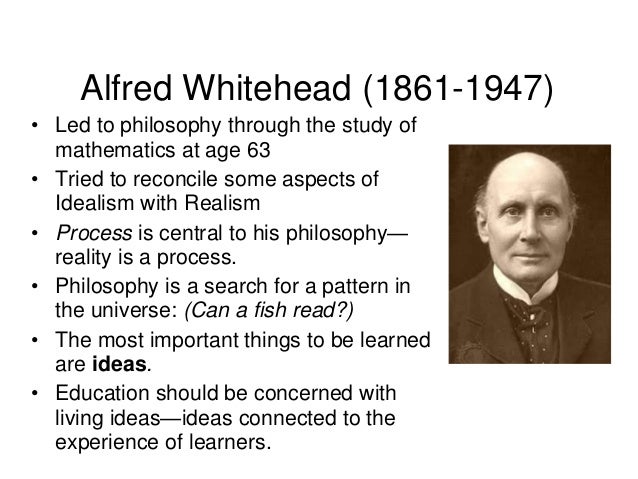
pg xii - xiii
Part 1 - Introduces Cosmology
Part 2 - Relates all academic pursuits into Cosmology
Part 3 - Categorical groupings within Cosmology
Part 4 - Continues Part 3 using pure and abstract thought (most may skip this section)
Part 5 - Summation of Cosmology as Organism
Being familiar with Kant and his successors Whitehead determined at the outset to build on pre-Kantian thought. Why? Because, in Kant's words, "The human mind structures the world." To Whitehead's thinking this was not correct. The pre-Kantian position stated, "The world (of reality or organism) structures the human mind" and not the other way around. By this Whitehead can be described as an unqualified realist, meaning, "the world is" whether we know it or not. It had existed eons before humanity's arrival to comprehend and systematize it, and will go on existing when we have left this Earth. That humanity is but a very recent anamoly within its hoary history.
As such, its history of organic relationships is profound, disturbingly so, as we venture within our meager moments of existence to comprehend and systematize its eternal unfolding or "becoming" from moment to moment. This last is the very reason why we can never state absolutely with certainty whether reality is this-way-or-that as reality-in-itself is a living organic actuality perfusing infinite relationships between things from one moment to the next. It's reality is never static but a living dynamic bound in relationship with the entirety of its living corpus dynamically expounding its "being with events" leading towards newer "becomings." The best we can do is to approximate its organic metaphysic by stating such an organism may be this-way-or-that but not always, nor forever.

As such, its history of organic relationships is profound, disturbingly so, as we venture within our meager moments of existence to comprehend and systematize its eternal unfolding or "becoming" from moment to moment. This last is the very reason why we can never state absolutely with certainty whether reality is this-way-or-that as reality-in-itself is a living organic actuality perfusing infinite relationships between things from one moment to the next. It's reality is never static but a living dynamic bound in relationship with the entirety of its living corpus dynamically expounding its "being with events" leading towards newer "becomings." The best we can do is to approximate its organic metaphysic by stating such an organism may be this-way-or-that but not always, nor forever.

Adverse Influences on Philosophy
1 - Distrust of speculative philosophy
2 - The inadequacy of language
3 - The inability to state comprehensively a philosophical system
4 - Expression always steers us to the subject-predicate form of understanding
5 - The experience of reality is informed by our past and present
6 - Actuality is never fully defined
7 - Misleading idealisms separate us from actualities
8 - Ex absurdo arguments are misleading
9 - Neither rationalism nor mysticism are sound philosophical foundations
on which to speculate, imagine, or create a testable system.
Beginning with item 1. Imagining is necessary for science, philosophy, and theology. Whitehead called imagining "speculation" in his day. What he wished to point out was the need to rethink systems profoundly. Conversely, empirical / rational philosophy differs from speculative philosophy in those disciplines quest for certainty. But the quest for certainty can never be arrived at in a process world of becoming by its very nature of "process becoming".
Item 2. Propositions are always ambiguous because of the nature of language itself with its imperfect means of communicating strictly, exactly, systematically. Language is always in the process of becoming coherent. It is never fully adequate in a world of process-based becoming. It's aftermath of meaning can vary widely between those reading or thinking through a communique's or system's iterations.
Item 3. Simply, "What is heard may not be what was intended." Dialogue allows for creating a closer understanding with one another but can never reach a point of completeness as events of becoming change its intentions, observations, inferences, and deductions over time and space.
Item 4. Seeing and experiencing is always fuller than reflective language in hindsight of the event. As we analyzed observation empiricism influences the senses; causes demand the conscious or nonsensuous; relationship to the event influences succession of the event and its processes; and, among other things, idealism or the need to find coherence, and thus to systematize, can cloud experience. Going back to item 3, language is powerfully shaped by our senses and consciousness; at times we allow one sense to overtake the others. Being a predominantly visual species we may miss the auditory sense of hearing, olfactory sense of smell and odor, the sensual of touch and feeling, and so on. Like language, even our physical being influences interpretation and comprehension.
Item 5. Perception of past and present event informs our world and beliefs. Though senses our important they may grossly affect or exaggerate reality's perception.
Item 6. Referring to vacuous actuality - seeing or thinking an actuality is fully defined when by definition of a processed based world it cannot be as reality shape-shifts through interminable relationships moment by moment.
Item 7. Kantian idealism separated from experience leads to (negative) adverse speculation or erroneous imagination. In essence, idealism cannot inform reality but reality informs idealism to allow for fully speculation, or imagining, of a subject.
Item 8. Ex absurdo arguments persist in false tautologies, deductions, or inferencing. By such logics we can state anything absolutely whether it be correct or not. As such, they become traps of falsely arranged (constructed) rationalisms.
Item 9. Refers to logical inconsistencies. Rationalistic propositions made by "popular philosophies and theologies" can be misleading. They are not a good vehicle from which to proceed. Neither can reliance on "mystery" form any adequacy of explanation as it can not be tested, observed or argued in its ethereal space of proposition. As such, a good philosopher or theologian rejects both rationalism and mysticism as proper foundations for philosophy and theology.
pg xiv
Whitehead believes we don't know anything certainly or dogmatically. That these sentiments run counter to a process world of becoming. We may explore, test, attempt to comprehend, and find coherence in a supposition as we search of clarity, knowledge or re-imagine what we are trying to discover. But in the end, the best we can do is to approximate reality without fully explaining its "being" of event driven relationships.
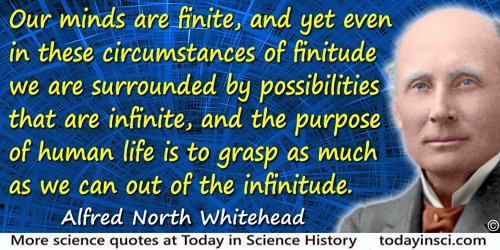
Whitehead sums up his preface as follows
1 - If one deconstructs then one must also reconstruct. The world of the organism demands this.
2 - The philosopher is to frame and explore what was reconstructed from what was deconstructed
giving the whys, wherefores, and hows of his suppositions.
giving the whys, wherefores, and hows of his suppositions.
3 - In exploring, on one is attempting to discover the hidden or unspoken scheme lying whatever portion of reality being research in extrapolating from this exploration a philosophical truth which may, or may not, be coherent to that discipline of science, philosophy or theology.
4 - There can never exist any dogmatic certainty, ever. Nothing is ever certain. All discoveries, assumptions, theories, or axioms, must be held loosely when forming coherency to a matter.
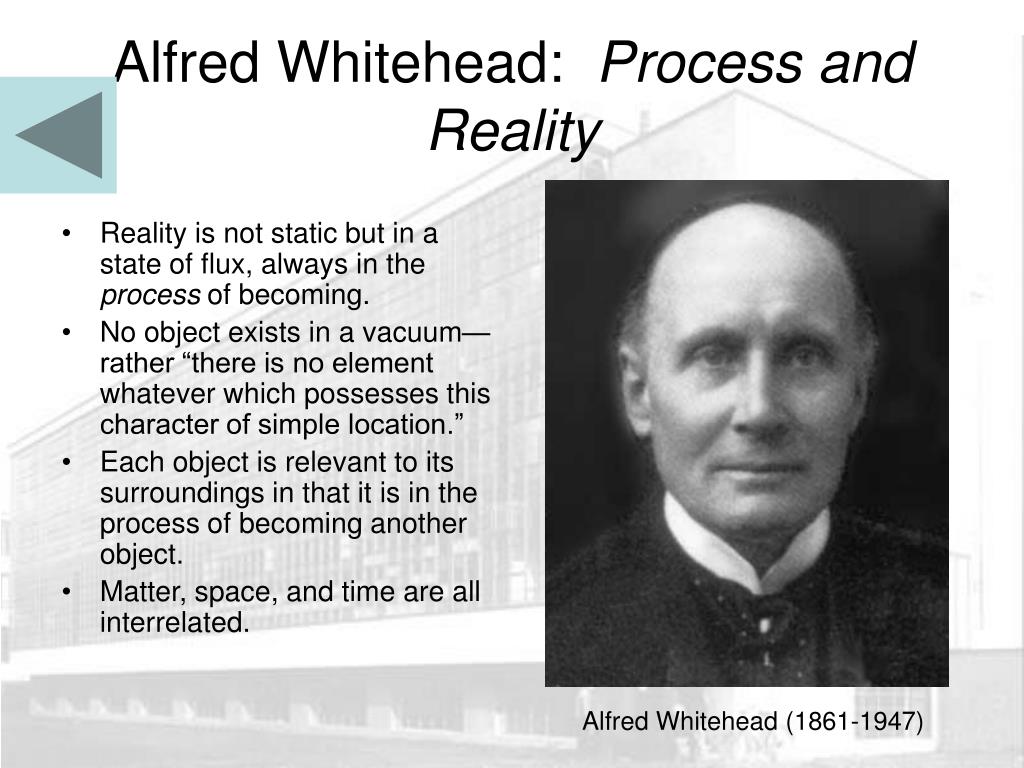
4 - There can never exist any dogmatic certainty, ever. Nothing is ever certain. All discoveries, assumptions, theories, or axioms, must be held loosely when forming coherency to a matter.

pp 3 - 5
Alfred North Whitehead's experience at the University of Chicago, which at one time had held a process philosophy department, noted two forms of process, neither of which he agreed with. Form 1 was led by the process philosopher Charles Hartshorne who preferred the rational approach. Form 2 was led out by the university's Divinity School arguing for the empiricist position. For Whitehead, neither form was sufficient as each neither completely informed experience or understanding of process philosophy as a cosmology.
Whitehead thus observes that speculative science and philosophy proceed mostly along the lines of either rationalism or empiricism. One holds to coherency and logic, the other to application and adequacy. Bound together they attempt to remove ambiguity but are not fully accounting for the nature of process reality's continually changing relationships between events and things moment by moment. Imagination then must have its affects over the approaches of coherence and logic. That is, between the interplay of induction, observation, and deduction, imagination (or speculation) must be at the core of this triangulation of scheme.
pg 7
Whitehead observes that the progress of though uses past discoveries to move forward. From Plato onwards the disciplines of philosophy, science or theology review their progenitors, then either keep their thoughts, reform their thoughts, syncretize it, or throw it out to begin a forward discussion of new iterations, ideas, and discoveries. For Whitehead, the one constancy of error throughout all of this process he calls "the fallacy of misplaced concreteness" meaning, making certain (or rigid) ideas of fact without questioning, doubting, or testing them thereafter. In this sense, Whitehead wishes to hold a "fact" loosely so as not to allow it to overlook at future approach or observation later. A thing should never be looked at as fully understood. Nor should its fact filled existence prevent future exploration beyond its sense of concreteness.

pg 8 - 17
Logic may only achieve certainty within the construct of perfect communication. Yet language can never achieve this but only approximate perfect communication through dialogue. Accepting or assuming a certainty may have been helpful at one time but can it remain helpful now when set within a different framework of perception? As example, the difference between enlightenment's classic world of physics and modernity's posture of the quantum world presently.
Skipping over the last several pages John Cobb moves to Whitehead's Philosophical Matrix.
1 - We may agree to a conclusion
2 - We may disagree to the details of the conclusion
3 - Yet a conclusion may be incomplete and in disagreement with "the facts"
4 - Therefore, always remain open to ideation, conjecture, speculative imagining
By this is meant that theories may approximate an observed reality but the nature of a process-based evolutionary creation of cosmogeny, nature, and civilization must always move forward unfixed.

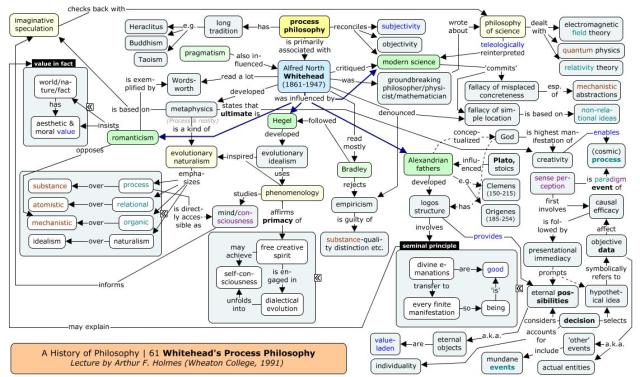

Alfred North Whitehead's experience at the University of Chicago, which at one time had held a process philosophy department, noted two forms of process, neither of which he agreed with. Form 1 was led by the process philosopher Charles Hartshorne who preferred the rational approach. Form 2 was led out by the university's Divinity School arguing for the empiricist position. For Whitehead, neither form was sufficient as each neither completely informed experience or understanding of process philosophy as a cosmology.
Conceive ----> Test -----> Reimagine
Whitehead thus observes that speculative science and philosophy proceed mostly along the lines of either rationalism or empiricism. One holds to coherency and logic, the other to application and adequacy. Bound together they attempt to remove ambiguity but are not fully accounting for the nature of process reality's continually changing relationships between events and things moment by moment. Imagination then must have its affects over the approaches of coherence and logic. That is, between the interplay of induction, observation, and deduction, imagination (or speculation) must be at the core of this triangulation of scheme.
Induction
- -
- Imagine -
- -
Deduction ------------ Observation
Whitehead observes that the progress of though uses past discoveries to move forward. From Plato onwards the disciplines of philosophy, science or theology review their progenitors, then either keep their thoughts, reform their thoughts, syncretize it, or throw it out to begin a forward discussion of new iterations, ideas, and discoveries. For Whitehead, the one constancy of error throughout all of this process he calls "the fallacy of misplaced concreteness" meaning, making certain (or rigid) ideas of fact without questioning, doubting, or testing them thereafter. In this sense, Whitehead wishes to hold a "fact" loosely so as not to allow it to overlook at future approach or observation later. A thing should never be looked at as fully understood. Nor should its fact filled existence prevent future exploration beyond its sense of concreteness.

pg 8 - 17
Logic may only achieve certainty within the construct of perfect communication. Yet language can never achieve this but only approximate perfect communication through dialogue. Accepting or assuming a certainty may have been helpful at one time but can it remain helpful now when set within a different framework of perception? As example, the difference between enlightenment's classic world of physics and modernity's posture of the quantum world presently.
Skipping over the last several pages John Cobb moves to Whitehead's Philosophical Matrix.
1 - We may agree to a conclusion
2 - We may disagree to the details of the conclusion
3 - Yet a conclusion may be incomplete and in disagreement with "the facts"
4 - Therefore, always remain open to ideation, conjecture, speculative imagining
By this is meant that theories may approximate an observed reality but the nature of a process-based evolutionary creation of cosmogeny, nature, and civilization must always move forward unfixed.
Speculative theories can never be concretely finalized. This would go
against the idea of "eventful becoming" of "being and relationship". - res
Theologic Observations
Christianity has failed to answer the questions of loss and pain. A comprehensive process theology would sufficiently reconcile theodicy with being and event. - res
"God" as an explanation for everything is not a sufficient explanation of reality. We must think about God through coherent approaches to life's many faculties. God = Truth. Fine. Yes. But "God" as an explanation for life's many questions is not sufficient enough to comprehend creation's infinitude of mechanisms. What we "see or observe" may be God's consequential nature through creation but in the observation we must avoid the static metaphysics of a non-process based theology resting on Platonic platitudes of the "eternal object" as versus the scientific discovery of creational dynamisms unfolding between being and event. - res
As philosophy modifies religion so too religion modifies philosophy. - John Cobb
The useful function of philosophy is to promote the most general systematization of civilized thought. There is a constant reaction between specialism and common sense. It is the part of the special sciences to modify common sense. Philosophy is the welding of imagination and common sense into a restraint upon specialists, and also into an enlargement of their imaginations. By providing the generic notions, philosophy should make it easier to conceive the infinite variety of specific instances which rest unrealized in the womb of nature. - ANW, last paragraph, pg 17








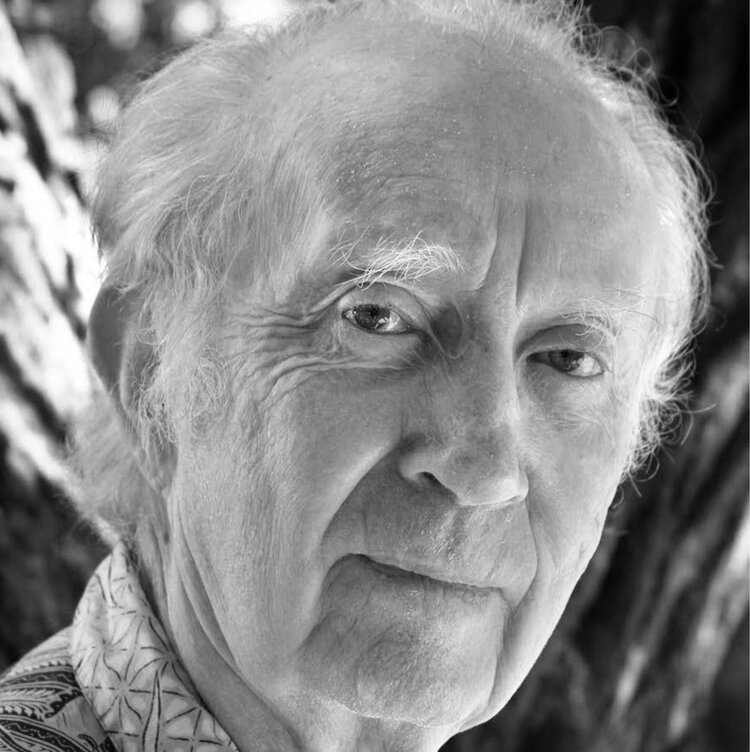








:max_bytes(150000):strip_icc():format(webp)/GettyImages-933712046-5bb39fb3c9e77c002603ebe2.jpg)
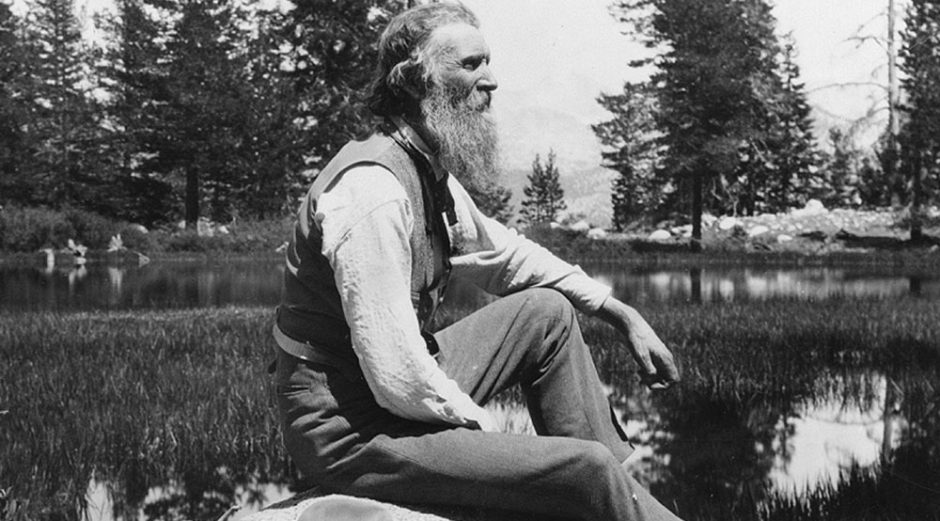
:max_bytes(150000):strip_icc():format(webp)/Rachel-carson-GettyImages-577685719-58b8c22b3df78c353c1e0c8e.jpg)

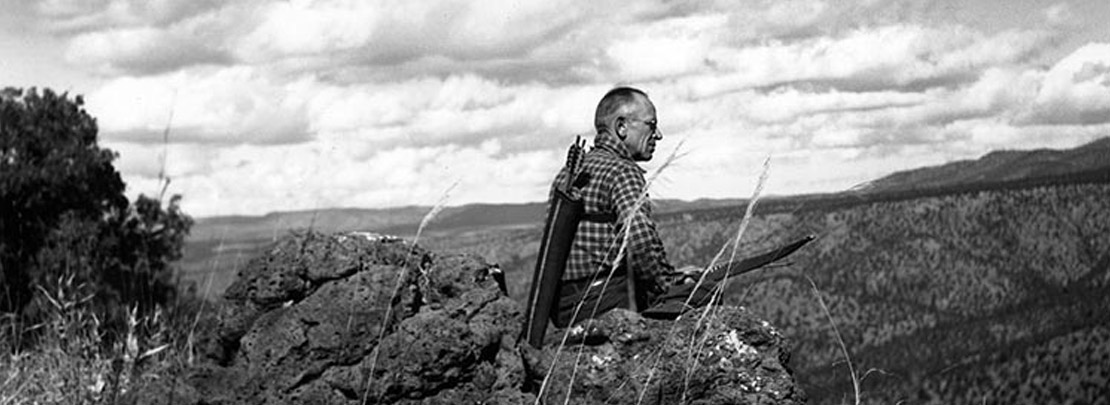
:max_bytes(150000):strip_icc():format(webp)/Julia-Hill-GettyImages-539723776-58b961705f9b58af5c449137.jpg)
:max_bytes(150000):strip_icc():format(webp)/Henry-David-Thoreau-GettyImages-AB30213-58b961ea3df78c353cd86ebb.jpg)
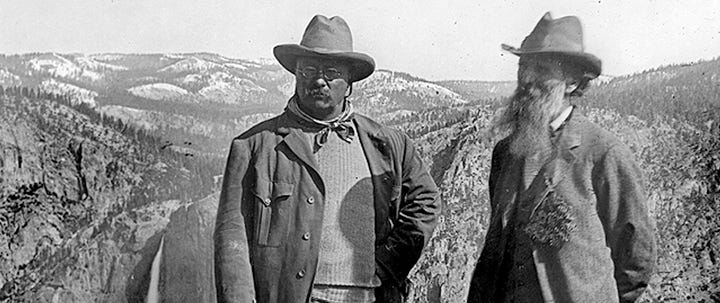

:max_bytes(150000):strip_icc():format(webp)/Chico-Mendes-GettyImages-530239202-58b966753df78c353cda7158.jpg)
:max_bytes(150000):strip_icc():format(webp)/Wangari-Maathai-GettyImages-525237988-58b966aa5f9b58af5c469d35.jpg)







![Whitehead Word Book: A Glossary with Alphabetical Index to Technical Terms in Process and Reality (Toward Ecological Civilization Book 8) by [Cobb Jr, John B]](https://images-na.ssl-images-amazon.com/images/I/411paEaBBDL.jpg)
